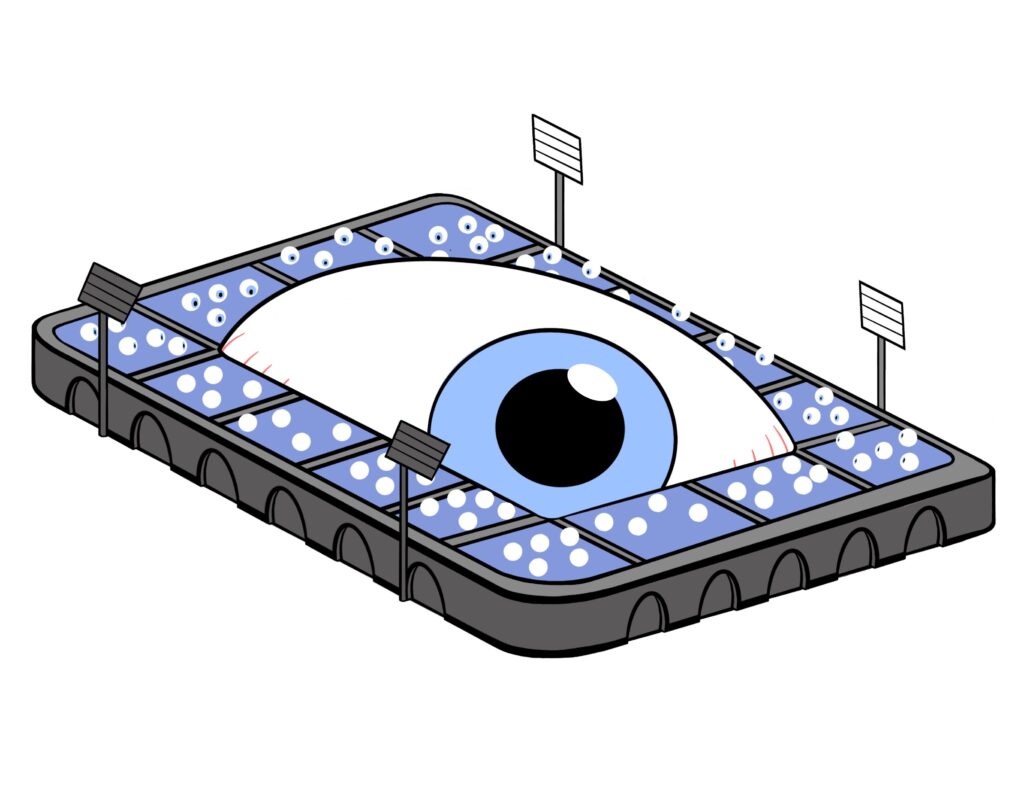WILL KARR
Editor in Chief

Many members of the campus community are wondering if the certified athletic trainer could have helped Winston on Feb. 21. Members of The Leader recently reached out to the President’s Office on Friday, March 31, regarding concerns over how this incident was handled by the Athletics Department, and our concerns were forwarded over to Student Affairs and the Athletics Department for immediate consideration by the Interim Chief of Staff & Executive Assistant to President Dr. Naomi Baldwin.
The Leader reached out to representatives from the campus Athletics Department and Student Affairs shortly afterwards — Angela Pucciarelli, assistant director of athletics, and Tracy Stenger, interim vice president of student affairs — regarding whether there is an actual written policy that would potentially prevent an NCAA and certified trainer from treating a club athlete in the event of a medical emergency such as this one and did not receive an answer to that question from either office via email.
After the night of the incident, the following day on Feb. 22, Maxwell Hamilton, President of Blackhorse Rugby reached out to Pucciarelli via email at 9:42 a.m. to inform her about the incident and to inquire about compiling an incident report.
“I know as a club sport, your athletic trainers are technically not responsible for our well-being, as they chose not to be present. However, I feel this situation needs to be documented,” Hamilton said in his initial email to Pucciarelli.
Pucciarelli responded to Hamilton later via email in the afternoon at 2:35 p.m. and said, “I hope your teammate is OK … our athletic trainers are staffed to take care of intercollegiate, and are not under contract with [Student Association] SA to be there for anything outside of an NCAA sports. I wanted to be clear about your word ‘choice’ since it wasn’t/isn’t about choice here.”
In this email, Pucciarelli said that trainers are “staffed,” contractually obligated, to help NCAA sports and not any sports outside of them, but does not mention or cite any specific NCAA or University Athletics policy that would have actually potentially prevented or prohibited the trainer from having helped Winston in these emails with Hamilton besides the fact that trainers are not contractually obligated to do so.
But many members of the campus community are left wondering if the trainer had the freedom and free will to help.
“From my understanding, you are telling me that because we are not NCAA athletes, in a life threatening emergency, there would be no response from the medical staff of the athletics department,” replied Hamilton to Pucciarelli’s above email.
“Sorry for any confusion,” responded Pucciarelli via email. “I am not aware of what happened on the turf last night, and I am not aware if there was any interaction with our certified trainers. There are times when your group holds practice and our athletic trainers are not on site at all due to the nature of their schedules and that of our teams. I am happy to meet to discuss …”
Hamilton, Pucciarelli and Winston met on the Friday after the incident, Feb. 24. They drafted a report to send out to other offices on campus including Campus Life and the Student Association.
In the incident report, Pucciarelli said, “Representatives from Blackhorse Rugby came into Steele Hall to seek medical attention from a certified athletic trainer (AT), and the AT mentioned that they were responsible for intercollegiate athletes, and they could not help a club team.”
In the report, Pucciarelli added another reason why the trainer said and alleged they could not help by stating, in a follow-up conversation between the athletic trainer and myself, our AT indicated that [they] said [they] could not leave as [they were] on-duty for our cheer team’s practice, [they] gave the club representative some gauze and they left. After [they were] done with the practice, [they] drove by the turf, anticipating to stop and check before [they] headed home, but [they] saw the ambulance there at that point.”
In the incident report, the trainer said that they saw both the ambulance and UPD while driving before heading home. All police units cleared out at 9:32 p.m., according to the police report. The ambulance and police were no longer at the scene together after 9:32 p.m. .
After Spring Break, Hamilton and Winston met with representatives of the Athletics Department, Campus Life and Student Association on Tuesday, March 21 in the Williams Center G103A to discuss the incident and possible solutions. The meeting included Hamilton, injured player Jason Winston, Pucciarelli, Mark Suida and Rachel Martin from Campus Life and Vince Gugino from Student Association.
When asked why he thinks he was not given medical attention by the trainer, Winston said “I think it was because they knew we weren’t an NCAA sport. That definitely played a part in them not helping. The trainer was also on site supervising another sport, cheer practice. I guess those are their main reasons.”
Hamilton added, “At that meeting [on March 21] with Mark, Rachel, Vince and Angela, Jason and I basically flat out asked if there is a policy written down somewhere that the trainers can’t help non-NCAA athletes. They didn’t really answer the question of whether there is a policy written down that trainers couldn’t help teams or players that are not NCAA recognized. If that is or isn’t the case, that should have affected how the trainer responded that evening. But, I think there definitely must be some instilled fear in that [athletics] office for someone not to help if it doesn’t say anywhere in their contracts or safety plans that they can’t help [a non-NCAA athlete].”
